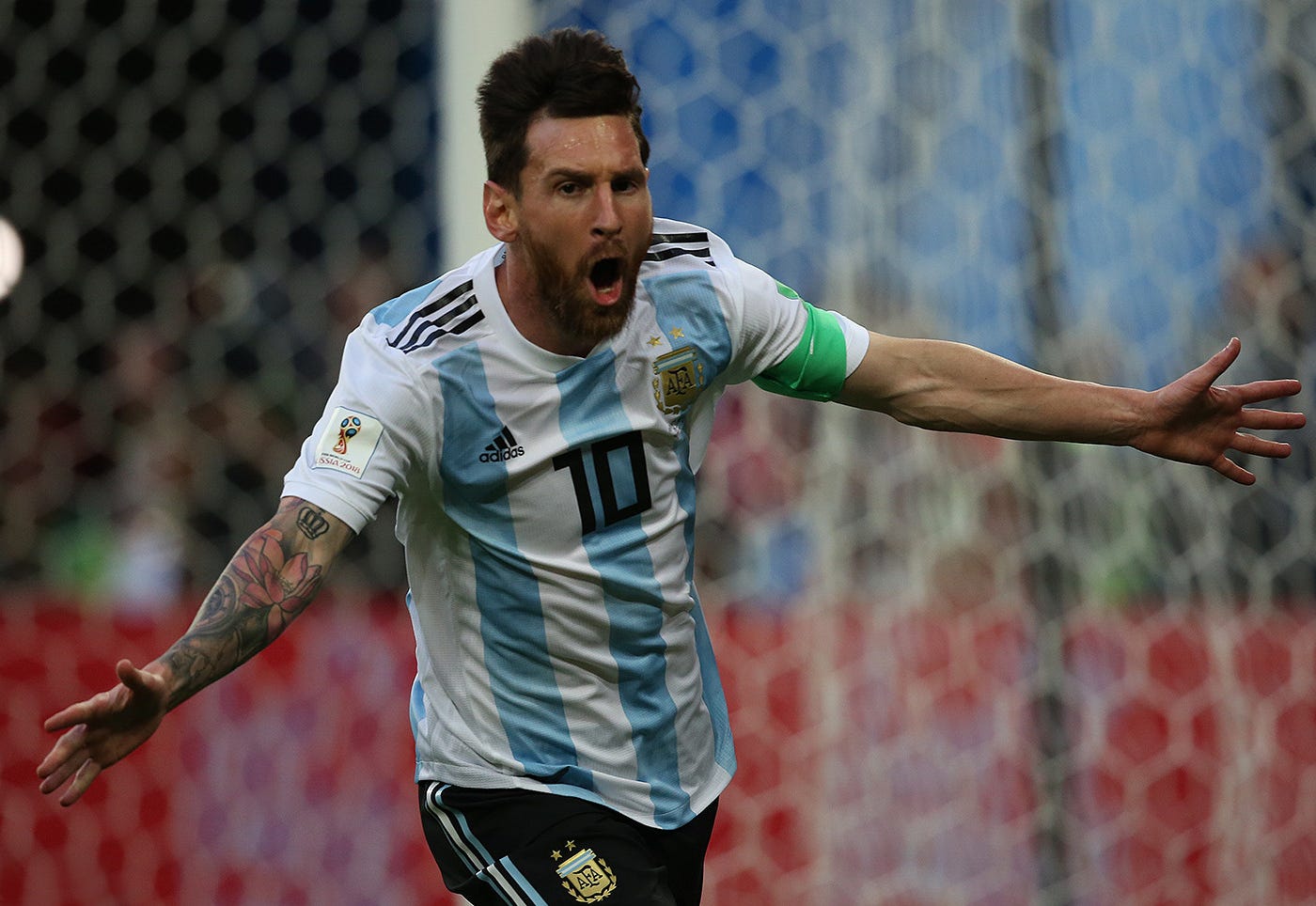“Are you watching soccer again?” My wife shakes her head as she walks by. After a long day of work and parenting there’s nothing better than watching the beautiful game. And there’s no one who plays prettier soccer than Lionel Messi. The Argentinian striker led his national team to World Cup victory in December as 1.5 billion people watched in awe. He’s a legend of the game and there’s no shortage of commentary on his play. But one article made me a better listener.
Jody Rosen of the New Yorker wrote an absolute gem of a piece called The Genius of Lionel Messi Just Walking Around. It’s full of nuggets like: “The idea is this: to apprehend the main thrust of the narrative, to really wrap your mind around what’s going on, you must shift your focus from the foreground to the background.” That’ll preach! We’ll have to come back to that one another week though because the image I haven’t been able to shake for the past six months is this:
“Manchester City’s Pep Guardiola, who coached Messi for four years at Barcelona, has described his walking, especially in the early stages of a game, as form of cartography—an exercise in scanning and surveying, taking the measure of the defense, noticing where the vulnerabilities lie, and calculating when and how opportunities might be seized. “After five, ten minutes, he’ll have a map in his eyes and in his brain,” Guardiola has said. ‘[He’ll] know exactly what is the space and what is the panorama.’”
After a little bit of walking, Messi understands his field and formulates his plan. Over the years, I’ve encountered countless churches that gather in a particular neighborhood but lack a basic understanding of their neighbors. As a result, their ministry is dislocated from their immediate surroundings. They’re not only ineffective cartographers of their field, they’re not even on the field at all.
The church is universal (exists as one) and the church is particular (exists in specific locations and contexts). Leonardo Boff observes, “The particular church is the universal church rendered visible within the framework of a time and a place, a medium and a culture.” To lose touch with your neighborhood is to lose your particularity, ignoring one of the most basic functions of the local church.
Every local church must become a cartographer. How will your church seek to understand your community better? Will you be like Messi and seek understanding through attentive walking? Or will you have intentional conversations with a diverse group of neighbors? The Spiritual Listening Plan can help you generate some ideas.
Practicing a form of cartography that works for your congregation is imperative. For once you understand your neighborhood, you’ll understand why God has planted your congregation in its particular place—and there’s nothing more beautiful than that.





Thanks Luke. Our focus will always inform our vision.
The movement from foreground to background - and back again and again - is vital to enable churches to formulate vision with an eye towards implementation. Listening leads to learning, which leads to, well, leading!